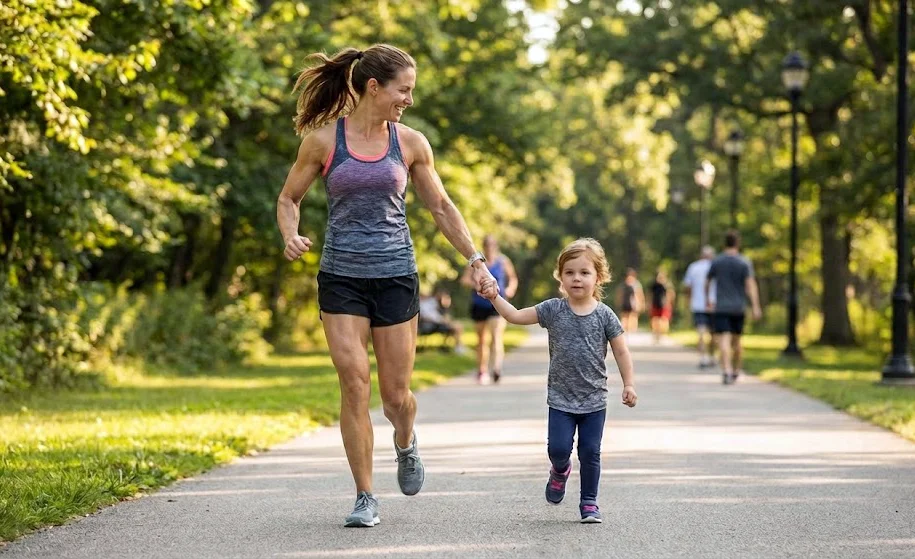Running in the sun can boost your performance but it also brings real risks. Discover how to stay safe, avoid sunburn, and still make the most of every sunny mile.
There’s something undeniably energizing about running under a clear, sunny sky.
The warmth, the light, and the open roads make it tempting to lace up and head out for a long run.
But running in the sun isn’t all golden rays and good vibes it brings along serious challenges you can’t afford to ignore.
Whether you're training in the tropics or tackling summer heat at home, it pays to know the risks and the right precautions.
Let’s break down what every runner should understand before heading into those sun-drenched sessions.
The Hidden Dangers of Running in the Sun
Sunburn isn’t just an uncomfortable nuisance.
It’s a warning sign and ignoring it can lead to major health risks like heatstroke, dehydration, and most concerning of all, skin cancer.
Some hard facts:
- Skin cancer is the most common cancer in the U.S. more prevalent than all other major cancers combined.
- Each year, about 5 million Americans are treated for skin cancer.
- One in five people in the U.S. will develop skin cancer at some point.
- Every hour, one person dies from melanoma.
If you’re regularly logging long miles outdoors, especially during peak sunlight hours, your UV exposure is sky-high.
Research shows that runners, especially marathoners, tend to have more age spots, abnormal moles, and skin lesions all signs that their skin is taking a hit.
And here’s the kicker: intense endurance training can actually weaken your immune system, which makes your skin even more vulnerable to UV damage.
Can You Run in the Sun Safely?
Yes but only if you take precautions seriously. Smart runners treat sun protection like part of their gear checklist.
Personally, I won’t head out the door without a layer of sunscreen, a breathable cap, and polarized sunglasses.
I also time my runs around the sun, aiming for early morning or late evening when UV levels are lower.
Why Sunny Runs Feel Tougher
Running under the sun feels harder for a reason. Your body shifts into overdrive to regulate its temperature, diverting blood away from your working muscles to help cool you down.
This forces your heart to pump harder and increases your perceived effort making a normally easy pace feel like a grind.
It’s not just about heat your entire cardiovascular system is being pushed harder, which can lead to quicker fatigue and slower splits.
Surprising Benefits of Running in the Sun
Despite the risks, running in the heat has some perks too if you do it right.
Boosts Endurance Like Altitude Training
Training in the heat pushes your cardiovascular system to adapt.
Studies show it can increase blood plasma volume, lower your core temperature, and enhance muscular efficiency.
After a few weeks of acclimation, many runners find they perform better even in cooler temps.
Increases Vitamin D
Just 10 to 15 minutes of sun exposure helps your body produce vitamin D, essential for strong bones, immune health, and mood balance.
If you're usually indoors, a few sunny runs can be a great natural boost.
May Enhance Performance
Believe it or not, some research suggests that short exposure to UVA rays may actually improve athletic performance due to the release of nitric oxide, which improves blood flow.
That means better oxygen delivery to your muscles just don’t overdo it.
Sun Safety Tips for Runners
Ready to keep your skin safe while still enjoying your sunny miles? Here’s how to do it right.
Choose a Quality Sunscreen
Opt for a broad-spectrum SPF 30 or higher to shield against both UVA and UVB rays. Pick a water-resistant formula, especially one designed for athletes.
For sensitive skin, look for mineral-based options with zinc oxide or titanium dioxide.
Apply it 20–30 minutes before heading out and reapply every 60 to 90 minutes, especially on long runs.
Wear UPF-Protection Clothing
UPF-rated gear blocks UV rays and adds another layer of defense:
- Long-sleeve, lightweight shirts
- Running hats with wide brims or neck flaps
- Brands like Columbia, Patagonia, and Under Armour make solid, breathable options
Shield Your Eyes
Polarized sunglasses reduce glare and block 100% of UV rays. Wraparound styles work best for keeping your eyes fully protected and comfortable during sunny runs.
Adjust Your Running Times
Avoid running between 10 a.m. and 4 p.m., when UV radiation is strongest. Early mornings or evenings offer cooler temps and safer sun conditions. Shady routes are a bonus.
Stay Hydrated
Drink water before, during, and after your runs. On hotter days, supplement with electrolytes to replace what you lose through sweat. A handheld bottle or hydration pack is essential for longer outings.
Get Checked by a Dermatologist
If you run outside regularly, make annual skin checks a habit. Early detection is your best protection.
Pre-Run Sun Safety Checklist
Before heading out into the sun, double-check that you’ve got these covered:
Apply Sunscreen
- SPF 30 or higher, broad-spectrum
- Apply 30 minutes in advance
- Reapply every 1–2 hours or after heavy sweating
Wear UPF Clothing
- Long sleeves and hats with neck coverage
- Breathable fabrics with UPF 50 rating
Protect Your Eyes
- Polarized, wraparound sunglasses
- 100% UV protection lenses
Hydrate Properly
- Drink water regularly throughout the day
- Use electrolytes on high-heat runs
Time It Right
- Run before 10 a.m. or after 4 p.m.
- Stick to shaded or tree-covered routes when possible
Running in the sun can be energizing and empowering if you take the right steps to stay safe. With smart planning and the right gear, you can enjoy your sunny miles without putting your health on the line.






.webp)